Lahooti Melo sees discourse on art, society
Local, foreign musicians perform at 10th edition of the festival
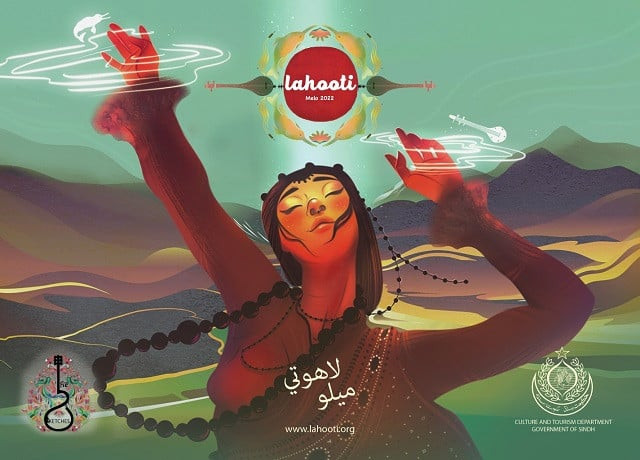
The tenth edition of the two-day Lahooti Melo, a festival featuring intellectual discourse on art, music and social issues, concluded on Sunday night at the Hyderabad Press Club.
An array of singers and musicians, both local and foreign, performed on the stage besides also expressing their views in the panel discussions which focused on the tribal disputes, river and water issues, shrinking public spaces, conservation of migratory birds and a decade of organising Lahooti Melo.
Nepal's musician Ani Choying Drolma, Freidrich Norman Foundation (FNF) Country Director Birgit Lamm, US musician Victorien, water expert Dr Hassan Abbas, DIG Hyderabad Peer Muhammad Shah and journalist Wusatullah Khan were among the panellists.
Professor's killing
The inaugural session on Saturday started with recalling the savage killing of Dr Ajmal Sawand, a PhD in artificial intelligence from France who was gunned down in KashmoreKandhkot district on April 6 because of a tribal dispute between Sawand and Sundrani tribes.
The panelists reviewed the disturbing issue of the tribal vendettas with reference to the killing of Dr Sawand who was an assistant professor in Sukkur IBA University.
"After his burial some people of our community sought my permission to take revenge from Sundranis. But I begged them not to kill anyone because my brother was an academician who believed in changing mindsets through education and not by bloodshed," said Dr Tariq Sawand, elder brother.
He recalled that 12 gunshots were fired on his unarmed brother who was returning from his ancestral village to Sukkur, after spending a day meeting the relatives and convincing them to give higher education to their children.
DIG Hyderabad Peer Muhammad Shah said the police deal with issues of tribal killings just systematically, leaving the root causes to the politicians to deal with.
"Cancer can't be treated with aspirin," he said, arguing how ineffective the role of police becomes when it comes to fundamentally addressing the problem of tribal conflicts.
The Nepali musician Ani Choying Drolma said Dr Sawand's killing reminded her of the Maoists violence in Nepal.
She said she always felt saddened by the events of killing by the state and Maoists forces of innocent humans.
Drolma sang a song in her language which expressed her agony.
"One can take away a person's money or belongings and put them to use. But one can't take someone's life and use it as well."
Decade of Lahooti
Mai Dahi, the famous folk singer from Tharparkar, praised the team Lahooti for putting the singers like her on the map through the festival's platform.
"We used to sing at the shrines and in the villages. But, Lahooti brought us to the cities and introduced our music to the people," said Bhagat Bhooro Lal, a folk musician.
Fakir Zulfiqar, who played a clay made music instrument tracing it to the time of Mohenjo Daro, recalled that they planted a sapling 10 years ago and now Lahooti has made global imprints.
The US based musician Victorien said whenever he visited Pakistan he was asked strange questions on return by the people in his country.
"But each time when I go back I have some interestingly good stories to tell and Lahooti is one of such beautiful stories."
The Sindhi Language Authority Chairman Ishaq Samejo credited Lahooti for contributing to negating the state created perception of one country, one nation and one culture.
"Lahooti has unmasked this artificial perception by showing the diversity."
For him, the festival will also be remembered for introducing the folk Sindhis singers and musicians to the outside world.
Indus River
The water expert Dr Hassan Abbass said the Indus River is gifted with a unique system of groundwater which other major rivers in the world lack.
"The geologists say the subsoil water of the Indus is a miracle."
Quoting a 1986 book, he told that the quantum of aquifers in Sindh is ten times higher than the surface water. However, he deplored that the country's development policy has completely ignored the importance of subsoil water.
He believed that the art should be made an intrinsic part of the development policy.
Milaap
The architect, researcher and heritage preservation activist Marvi Mazhar spoke about her upcoming short documentary film in the session titled Milaap, Field Notes from Where Salt Meets the Sweet Water.
Fatima Mullick, senior arts manager at the British Council, moderated the session. Marvi Mazhar said, "Once I, [Abduzar] Madhu and Zohaib [Kazi] sat together, we started to talk about brackish and sweet water. A question was raised. What happens when the sweet water meets salt water?"
According to her, they found the answer to their elusive question only from the indigenous people who had their stories to tell about the river and the sea.
The documentary will show how women and their lives are being affected because of negligent government policies concerning urban and rural zoning.
She blamed the state for deliberately creating voids to keep the people apart.
"There ought to be urban and rural conversation. The cities can't be separated from the villages because what we do in cities affects villages and what villages grow we eat," she said.
Madhu and Kazi also shared their views about the film.
Musical night
The panel discussions were followed by musical nights on both the days.
On the first night, Mai Dhai, Juman Fakir, Bhagat Bhooro Lal, Pahnji Gang, Rebel Club, Safa Jalal, Akbar Khamiso Khan, Drolma, Humera Channa, Sabrina Terrence, Bakshi Brothers, Niazi Brothers and the Sketches enthralled the audience.
Arsalan Shaikh, Arieb Azhar, Mai Nimani, Zainub Khuwaja, Ahsan Bari, Nafs, DJ UNK, Victorien, Monica Dogra, Shaman Ali Mirali and Umair Jaswal took the stage on the second day.

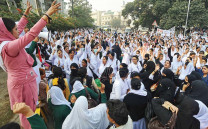
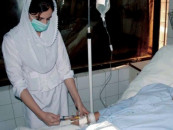

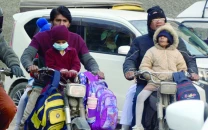
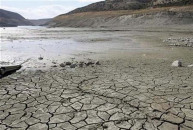












COMMENTS
Comments are moderated and generally will be posted if they are on-topic and not abusive.
For more information, please see our Comments FAQ